Welcome to the August 2024 edition of Phytogen!
Remember to register and/or submit an abstract for your local ASPS hybrid conference happening in late November. For more info, register or submit an abstract click HERE
This issue we are celebrating the achievements of two amazing scientists, Prof Ros Glendow who was elected to the Australian Academy of Scientist, and Prof Keiko Torii who was awarded the Purple Ribbon in Japan. We also have a Science Meets Parliament 2024 report, a contribution from ASPS Cell Biology Representative and we continue to highlight our students awardees of the travel grant of the International Plant and Molecular Biology (IPMB) conference held in Cairns in June.
Lastly, we continue to spotlight our student members with our dedicated section launched last month. This issue, we have Lucas Auroux, a PhD student at LaTrobe University who is also the student representative of the Website and Communications Sub-Committee (WCSC) and co-editor of Phytogen. Students, if you would like your work highlighted in Phytogen and our social media, please contact Phytogen editors Razlin (razlin.azman@csiro.au) or Lucas (l.auroux@latrobe.edu.au).
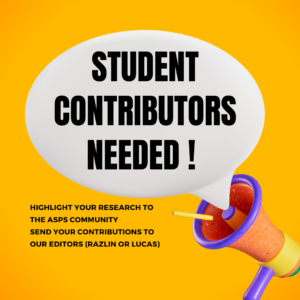
Celebrating achievements of ASPS community
“On behalf of ASPS, I congratulate Ros and Keiko on their elections to their respective national academies of science. I would also like thank both for being engaged and active members of ASPS. They have made valuable contributions to our awards processes and the promotion of our Society. Their desire and excitement to understand the biology of plants is an inspiration for all plant scientists and they are exceptional role models for early-career researchers. It is wonderful and absolutely fitting that their achievements have been recognised at these high levels”
Prof Martha Ludwig, ASPS president
Prof Ros Glendow
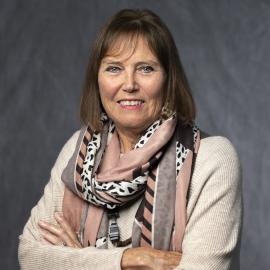
On behalf of the editorial team, I congratulate and celebrate Ros’ election as a Fellow of the Australian Academy of Science in 2024. With such a distinguished and impactful career, it’s hard to summarise and pay tribute to all she has done for plant science research and teaching. Ros has been a key figure in the Monash Agtech LaunchPad, Australian Academy of Science’s Committee for Agriculture, Fisheries and Food, and Australian Plant Phenomics Facility just to name a few. In addition, she was the president of ASPS (2010 – 2012) and Global Plant Council (GPC; 2018 – 2019). She served the ASPS in as a discipline representative several times and is a regular participant at our conferences. She was awarded life membership of ASPS in 2018 and was the JG Wood Lecturer in 2019. Look out for the “Konzo: Forgotten but Not Gone” webinar on September 5th, 2024, hosted by the Global Plant Council where Ros will be interviewing Dr Julie Cliff on Konzo, a neurological disease linked to the consumption of improperly processed cassava. Click HERE to register.
Ros is an ecophysiologist, and a world leader in the field of cyanogenesis, investigating the process of cyanide release in plants in response to herbivory. Using cyanogenesis as a model, she has integrated opposing theories of plant defence into a single overarching theory demonstrating that these bioactive compounds are intricately involved in nitrogen management within the plant, and that this is the evolutionary driver, not herbivore resistance. Her work explains why so many crop plants are cyanogenic and helps predict changes in nutritional value of plants in response to environmental challenges. Check out her talk on this topic here. She is passionate about plants and the need to communicate the issues around sustainable food production.
Ros was pivotal in leading and transforming the Monash undergraduate program on scientific practice and communication. During her tenure as ASPS president, she established social media presences for ASPS on X (formerly known as Twitter) and Facebook, choosing the handles @asps_ozplants name to distinguish from any other ASPS groups. In celebration of the 60th anniversary of ASPS in 2019 Ros penned this reflection piece. While president of the GPC she worked with plant scientist organisations globally to increase visibility and counter ‘plant blindness’. Ros wrote frequently on this topic and the role of professional societies on global plant research. Ros also talked about her career and her experience on the Global Plant Council’s The Academic Odyssey Series (click for link).
I had the pleasure of speaking to Ros for this edition of Phytogen
Q: Looking back on your career, what do you think was the most pivotal moment in your career, and what advice can you give to the next generation of plant scientists?
A: For me, it was when I was successful in getting my own funding, based on my original idea. For those still early in their career, my advice would be start small. Build up your reputation and learn how to manage project deliverables and budgets. Develop your research and teaching portfolio and look out for prizes and awards
Q: How important are professional societies such as ASPS?
A: Immensely important, they allow you to form networks and form collaborations. It used to be that you would only cross paths with your peers at conferences, where initial discussions could lead to collaborations. But with a global network such as ASPS and GPC, there is an added benefit of connecting to other researchers you may not cross paths with at conferences and meeting. It allows you to think outside your usual space and try something different.
Prof Keiko Torii
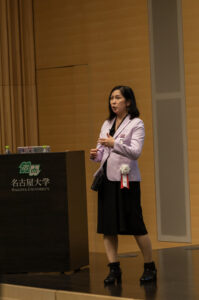
I also congratulate and celebrate Keiko for her Medal of Honor with Purple Ribbon from the Emperor of Japan. The award is a prestigious national honour awarded for contribution to the academic and artistic development of Japan. Keiko has been honoured numerous times in Japan with the Asahi Prize in 2021, Saruhashi Prize in 2015, Inoue Prize for Science in 2015 and Science Lectureship Award from Chiba University in 2014. Internationally, she has been recognised with the Stephen Hales Prize from American Society of Plant Biologists and Bateson Lecture from John Innes Centre, both in 2023. In 2012, she was elected to the American Association for the Advancement of Sciences (AAAS), follow by election to the American Society of Plant Biologists in 2015, and this year was elected to the National Academy of Science (USA).
If you take a look at her profile at the University of Texas where she is the Johnson & Johnson Centennial Chair in Plant Cell Biology since 2011, one cannot help but be inspired by this amazing scientist. Since 2011, she is a Howard Hughes Medical Institute and Betty Moore Foundation (HHMI-GBMF) investigator, an endowment that recognises innovative plant scientist researchers. Until 2022, she also ran second lab at the Institute of Transformative Biomolecules (WPI-ITbM) at Nagoya University, Japan as an Oversea Principal Investigator.
The Torii lab researches stem cell maintenance and the cell-to-cell communication required to correctly pattern tissue during development, focusing on stomatal development as a model. Her work on cell-to-cell communication has also focused on the mechanisms that determine organ size and shape in plants. Some of her achievements include discoveries of key signalling ligands, receptor kinase signalling pathways, and master regulatory transcription factors that specify stomatal patterning and differentiation. Her research and collaboration ranges from cell-cell signalling in plant development to maintenance of lineage-specific stem cells, influence of extrinsic peptide and chemical signals in cell-fate decisions and patterning, and creation of an artificial ligand–receptor system to manipulate plant developmental signalling.
A browse of the Torii lab webpage clearly shows that she understands how important it is to communicate your science. Probably one of the best lab websites out there! In addition, she is also active on X (@KeikoUTorii). Checkout this video of Keiko giving a talk for the Gatsby Plant Science Summer School 2022, showcasing her ability to communicate her complex research. In another video, Keiko talks about her life, research and her success after relocating from Japan to America. With her numerous awards, Keiko is an inspiration to us all. Hopefully, one day we can welcome her to Australia for an ASPS conference.
Section written by Razlin Azman, co-editor Phytogen.
Science Meets Parliament 2024 Report
Report by: Nijat Imin, School of Science, Western Sydney University.
I co-represented the Australian Society of Plant Scientists (ASPS) at Science Meets Parliament (SMP) in March 2024. Science Meets Parliament (SMP) is a national gathering of STEM professionals designed to foster closer collaboration between STEM professionals and the nation’s decision-makers, shaping better policies for the future. Over 360 delegates and more than 90 parliamentarians participated in the event. The goal is to increase communication and collaboration between these two groups. As noted by Professor Brian Schmidt during his presentation, “SMP is a unique event in the world that links researchers with policymakers. Solutions need a collaborative, interdisciplinary approach, and policy makers need to make sure their policies are evidence-based”. I found the event to be a valuable experience and enjoyed the sessions. The event’s centrepiece was the Indigenous engagement session, “Next Steps to Elevate and Invest in First Nations Knowledges as a Priority.” Indigenous STEM researchers led a discussion on how to ensure Indigenous knowledge receives dedicated focus within national science and research priorities.
Below are some other highlights.
- Industry and Science minister Ed Husic announced the changes to the Global Science and Technology Diplomacy Fund (GSTDF). Up to $6 million in total grants are now available for Australian researchers to partner with counterparts in Indonesia, Malaysia, Singapore, Thailand, Vietnam, New Zealand, Japan, the Republic of Korea and Brazil.
- Ambassador Caroline Kennedy delivered a speech about collaboration between the United States and Australia on scientific issues. The Ambassador highlights three areas of collaboration: health care, national security, and climate change
- Speaking at the National Press Club today, Science & Technology Australia President Professor Sharath Sriram made a powerful case for rapidly reaching the 3% target to turn Australia into an innovation nation, revealing how to create an innovation ecosystem that will secure the country’s economic future, and warned of the consequences of failing to do so. He discussed the potential economic benefits of this investment. Australia currently spends less than 2% of GDP on R&D. If Australia invested 3% of GDP on R&D, the economy would grow by $100 billion and create 42,000 jobs. A connected innovation ecosystem is key to turning Australian ideas into products. Without this ecosystem, Australia will be a nation of consumers rather than creators.
I had the privilege of dining with the Honourable Warren Entsch, Member of Parliament, along with several other scientists. During the meal, we listened intently as he shared insights into his life’s journey and remarkable career accomplishments. I had the opportunity to visit and interview Member of Parliament Rowan Ramsey. It was fascinating to gain a firsthand glimpse into the work and responsibilities of an elected official. During our insightful discussion, we explored a range of topics related to plants, the environment, and agriculture. I emphasised the paramount importance of plant research, to which Mr. Ramsey voiced his strong agreement and support. It was a wonderful opportunity to engage with our policymakers. Also, it was equally wonderful to be in a room filled with enthusiastic scientists from diverse disciplines and all regions of Australia. There was an abundance of stimulating discussions, and many new connections were forged. I would highly recommend this experience to anyone.
Check out some images from Nijat’s Science Meets Parliament 2024 experience

Cell Biology Representative Update
Dr Crystal Sweetman, Flinders University (South Australia) | Bio: Dr Crystal Sweetman – Flinders University | X: CrystalSweetman
I would like to take this opportunity to introduce the Plant Molecular Physiology group at Flinders University, consisting of several wonderful research leaders working in plant cell and molecular biology. These include Prof. Kathleen Soole, A/Pro.f Peter Anderson, Dr Sunita Ramesh, Dr Yuri Shavrukov, Prof. Colin Jenkins and Em/Prof. David Day. Below, I mention a few recent and exciting activities from within the group.
The first two projects that I’d like to mention, and happen to be involved with, aim to (i) diagnose and (ii) treat (or prevent) oxidative stress in crops. With Professors Soole & Jenkins and researchers at Washington State University, as well as Longreach Plant Breeders and support from the Foundation of Food and Agriculture Research, we are exploring a new, high-throughput phenotyping tool for oxidative stress in wheat based on peroxisome abundance. Meanwhile, alongside A/Prof. Peter Anderson and industry partners Sylvaco and Field Systems, we are exploring the effectiveness of Aussie hardwood pyrolysis products as naturally-derived antioxidant mixtures. These are exciting times in the Flinders laboratories as we investigate cellular indicators of oxidative stress and the mechanisms of treatment strategies for improving stress resilience in crops.

Left: Miss Lauren Philp-Dutton (PhD candidate), Dr Crystal Sweetman and Prof. Kathleen Soole spending time with drought-stressed wheat in the Flinders greenhouses. Middle: Miss Lauren Philp-Dutton and Mr Mitchell Eglinton (Longreach Plant Breeders and Honours student) collecting field samples for peroxisome abundance measurements. Right: Miss Jamie Lowe (Honours student), Dr Crystal Sweetman and A/Prof. Peter Anderson in a Flinders greenhouse with plants used for pyrolysis treatment experiments.
We are also working on two projects dealing with aspects of drought responses in chickpea, one supported by DFAT and the other by GRDC. These projects involve Dr Ramesh, Professors Day & Soole and PhD candidate Katie Schleyer, in collaboration with SARDI and University of Adelaide researchers. Dr Sunita Ramesh has several projects on the go, mainly focussing on plant stress tolerance mechanisms and plant-soil-microbe interactions. This includes a collaborative project with partners at the University of Adelaide on heat stress in wheat, and with post-doc Dr Nick Booth on the role of GABA in cell signalling and stress tolerance. Another major research project for Dr Ramesh and Prof. Day is investigating communication between nitrogen fixing rhizobia and legumes, with Dr Penny Smith at La Trobe and Em/Prof. Steve Tyerman at the University of Adelaide.

Left: Dr Crystal Sweetman, Prof. Kathleen Soole and Miss Katie Schleyer (PhD candidate) with chickpea in the Flinders greenhouses. Middle: Dr Sunita Ramesh and Right: Dr Nick Booth handling wheat samples
Dr Yuri Shavrukov has also been very busy working with genetic markers for various traits in cereals and legumes, particularly with recent Bolashak Fellows from Kazakhstan. Yuri also recently visited multiple institutes in Kazakhstan, making important connections with researchers and executives. We look forward to welcoming more research fellows next month!

Dr Yuri Shavrukov meeting with executives at Kazakh Agrotechnical University, discussing links with Flinders University and a new Kazakh-Australian Innovation Research Centre.
Flinders researchers have recently enjoyed engaging with members of the Ag industry in South Australia, participating in grower days such as “Flinders in the Flinders (Ranges)” as well as PIRSA-SARDI site visits. We also look forward to our first season engaging with the Long Term Trials of Drought Resilient Farming Practices Grant with SARDI, “Soil and microbial amelioration to enhance the drought tolerance of crops”. Incidentally, Flinders has committed a PhD scholarship to this project, so please mention this opportunity to any prospective postgrads in your area!
Now, a final spruik from me as we count down to this year’s ASPS hybrid meeting. The Adelaide node will be held at the new Flinders City Campus in Festival Plaza on Nov 28th and followed by a one-day Workshop on Plant Soil Microbe interactions on Nov. 29th, supported by Flinders’ College of Science & Engineering. Please engage with your society by submitting an abstract and joining us in person this November – I look forward to seeing some excellent plant cell biology (and other) presentations!
Student travel grant awardees report – IBMP Cairns 2024
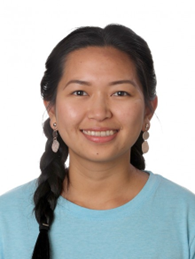
Suyan Yee – ANU (ACT) | X: @scienceYeeSu
I attended IPMB2024 in Cairns last month, with generous support from the ASPS Student Travel Award. There, I presented my ongoing PhD work on cell-specific abiotic stress responses in C4 plants, as part of the ‘Coordinating Photosynthesis’ session. This conference was a great opportunity to connect with the international plant science community, learn about emerging research technologies, and expand my professional networks. A highlight from the talks was the session on ‘Biomolecular Condensates’, where the speakers shared their exciting research on stress-induced subcellular lava lamps, a.k.a stress granules. The IPMB2024 organisers also incorporated ‘Student Night’ into the program to foster networking amongst peers, which was a great way to meet some future academic colleagues. Learning from my supervisors, a key takeaway from attending conferences like IPMB2024 are the knock-on effects it can have, such as the collaborative projects that arise from simple discussions over coffee and pastries.
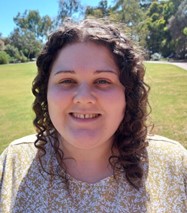
Jordyn Coutts – Monash University(VIC) |X: @JordynCoutts
Attending IPMB2024 was a very worthwhile experience. There was an excellent variety of talks, so that no matter if your interests were in pure or applied research, there were always multiple symposiums of interest at the same time to choose from. I loved that there was research across a variety of model organisms and crops. I could talk with other scientists during the breaks, lunches, poster sessions and dedicated networking events all throughout the conference. This meeting was the perfect opportunity for me to showcase my research and make valuable connections while learning great science.
Guilherme (Yoshi) Yoshikawa – UOA (SA)
With the support of ASPS through the Student Travel Award, I attended the International Plant Molecular Biology (IPMB) Congress in June 2024, in Cairns, and presented a poster. This was a fantastic opportunity to meet international scientists (and finally match faces to prolific international names in my literature review), connect with fellow students, and exchange perspectives on many subjects. The most fruitful interaction for my project, in floral architecture modifications in wheat, was a chat with Prof Vijayraghavan and Dr Peesapati visiting from Bangalore, who have done similar work in rice. On a personal level, I was inspired by the early career advice from A/Prof Demirer, who is visiting from California. To top this experience off, Cairns has astonishing ancient and endangered biodiversity and is right next to the Great Barrier Reef. I’m extremely grateful to ASPS for making it possible to attend an event so important to my career.
Anna Phillipova – UoM (VIC)
I enjoyed IPMB 2024 in Cairns a lot and the travel award from the Society made it possible for me to travel there. It was a great opportunity to connect with the scientific community and share the results of my PhD projects. Networking with scientists from all over the world gave me the burst of encouragement that I especially need now to finish my PhD. I also found this conference was a great platform for inspiring new ideas that would help me plan my future career.
Sonali Koundal – UWS (NSW)
I am delighted to share my wonderful experience at the International Plant Molecular Biology Conference (2024) held in Cairns this year. Firstly, I would like to extend my gratitude to the IPMB committee for giving me the opportunity to present a portion of my research work and selecting for Travel Grant Award. It was an incredible experience to hear about the groundbreaking work being done by renowned researchers and scientists in their respective fields. I presented my talk in the “Carbon Fixation Group,” focusing on how protected cultivation is enhancing the rate of photosynthesis with an emphasis on sustainability in research. I must say, the conference was exceptionally well-organized and meticulously planned, with each session offering its own unique insights and wealth of knowledge. The plenary sessions were particularly outstanding, both at the beginning and the end of the conference, showcasing the meticulous effort put in by the organizing committee. It was also a fantastic opportunity to connect with students and researchers from all over the world, sharing diverse scientific perspectives and areas of interest. Overall, it was an incredible experience to be part of such a remarkable conference.
Student contribution
Lucas Auroux
PhD candidate, La Trobe Institute for Sustainable Agriculture and Food (LISAF – AgriBio research center), Lewsey lab, Department of Animal, Plant and Soil Sciences, School of Agriculture, Biomedicine and Environment, La Trobe university.
Bio: Lucas Auroux Profile | La Trobe University | LinkedIn: Lucas Auroux | X: @AurouxLucas
Guided by an innate sense of curiosity, Lucas Auroux’s studies have taken him around the world to La Trobe University, where he is now undertaking a PhD. “My scientific interest in epigenetics, molecular biology and biotechnology has led me to different cities in France and Germany, and to different laboratories. I have worked with many people who have made me want to continue my studies by showing me different aspects of plant biology research.” “After completing my Masters, I saw a PhD position available in Professor Mathew Lewsey’s laboratory at AgriBio – a world-class facility for agricultural biosciences research and development – to work with Dr Lim Chee Liew.” “The facilities and the quality of the research encouraged me to jump into this new chapter down under.”
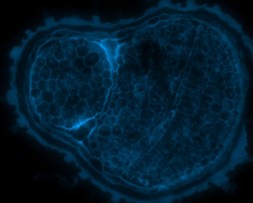
Lucas’ PhD is focused on the area that he loves most: genomics. “I am trying to understand how the genome of each cell of the embryo wakes up in the seed during germination, a crucial step in plant development,” he explains. To do so, Lucas uses cutting-edge technologies in omics and spatial biology, coupled with computational biology. “This research will help us to optimise the germination process in crops, which is essential for maintaining steady high-yielding crops for a growing world population impacted by a changing climate.”
Image: transversal section of Arabidopsis seed stained with DAPI. Image by Lucas Auroux
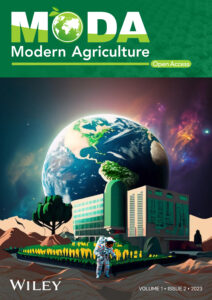
Last year, Lucas published his first paper and also made it to the cover of the journal (https://onlinelibrary.wiley.com/doi/full/10.1002/moda.20). In addition to his research, Lucas has been involved in teaching first and third year undergraduates the two last semester. Recently, he was appointed President of the HDR student Society of his research institute (AgriBio Student Society). He is also the student representative of the Website and Communications Sub-Committee (WCSC) and co-editor of Phytogen for ASPS
Image: Cover art for Modern Agriculture: Volume 1, Issue 2 designed by Lucas Auroux.
More information on the issue is available at Modern Agriculture: Vol 1, No 2 (wiley.com)
Editors’ note:
Phew that was a lot for one issue! Phytogen will be back for our next issue in late September. Don’t forget, registration and abstract submission for the local ASPS meetings for each state/territory in Australia and New-Zealand are now open.

